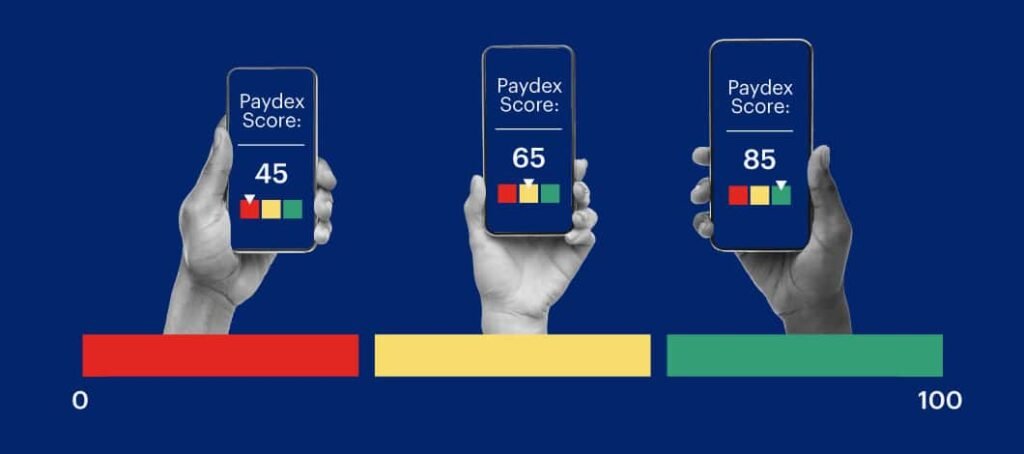Understanding PAYDEX Score: Importance and Implications
The PAYDEX score is a numerical representation of a business’s payment history, primarily calculated by Dun & Bradstreet (D&B). This score ranges from 1 to 100, with higher scores indicative of prompt payment behavior. A score of 80 or above is particularly significant, as it denotes a strong record of paying vendors on time or ahead of schedule. This financial score not only reflects the reliability of the business but also serves as a critical metric for lenders and suppliers when assessing creditworthiness.
A PAYDEX score of 80 or above offers various advantages for businesses, primarily in the realm of securing financing options. Lenders are more inclined to offer favorable terms, such as lower interest rates or higher credit limits, to businesses displaying strong PAYDEX scores. Furthermore, suppliers may be more willing to extend credit terms, allowing businesses to manage their cash flow effectively without compromising relationships. These favorable trade terms play a crucial role in facilitating operational growth and stability.
The implications of a high PAYDEX score extend beyond financial transactions. A robust PAYDEX rating can enhance credibility and build trust with potential partners and customers. Businesses that consistently showcase good payment practices are viewed as more reliable, which can lead to increased opportunities for collaboration and partnership. For example, research has indicated that businesses with a PAYDEX score above 80 are 12% more likely to receive more competitive financing options than those with lower ratings.
In summary, understanding the importance of a PAYDEX score and its implications is essential for businesses aiming to bolster their financial health. Managing and improving this score can serve as a vital strategy for securing favorable trade terms, enhancing credibility, and promoting overall growth in today’s competitive marketplace.
Strategies to Achieve and Maintain a PAYDEX Score of 80 or Above
Achieving and maintaining a PAYDEX score of 80 or above is crucial for businesses seeking to enhance their creditworthiness. One of the most effective strategies is to cultivate a culture of timely payments within the organization. This can be achieved by establishing clear protocols and accountability measures for payment schedules. All employees involved in financial operations should understand the importance of adhering to payment deadlines, which not only helps in maintaining a strong PAYDEX score but also fosters trust with vendors and suppliers.
Utilizing credit management tools is another valuable aspect of sustaining a high PAYDEX score. These tools can assist businesses in monitoring their financial health, tracking payment histories, and analyzing credit utilization. Implementing software solutions or applications designed for credit management can prompt timely payments and help in setting alerts for approaching due dates, ensuring a proactive approach to managing financial obligations. This extends to reviewing vendor agreements regularly to ensure favorable payment terms that align with the company’s cash flow cycles.
Establishing strong relationships with vendors is equally important. Businesses should engage in open communication with suppliers to negotiate better terms while demonstrating reliability. Regular interactions can also provide insights into their expectations, which can serve as a guide to meeting payment requirements effectively. Additionally, businesses should prioritize monitoring their credit profiles consistently. Proactive analysis of credit reports allows companies to identify areas needing improvement, whether it be reducing outstanding debts or addressing discrepancies with reporting agencies promptly.
Finally, seeking expert guidance can provide tailored strategies to enhance payment performance. Professional consultants can offer a fresh perspective, analyze current financial practices, and recommend innovative solutions tailored to specific business needs. Their expertise can ultimately assist organizations in achieving their goal of maintaining a PAYDEX score of 80 or above, enhancing not only credit profiles but also overall business reputation.

